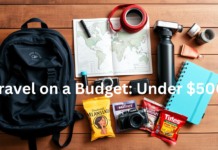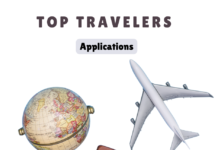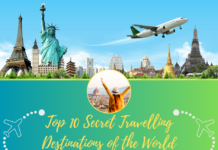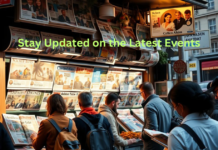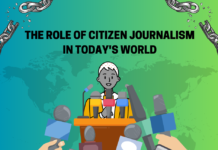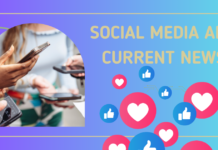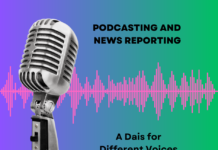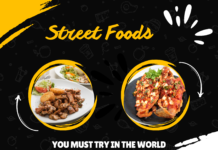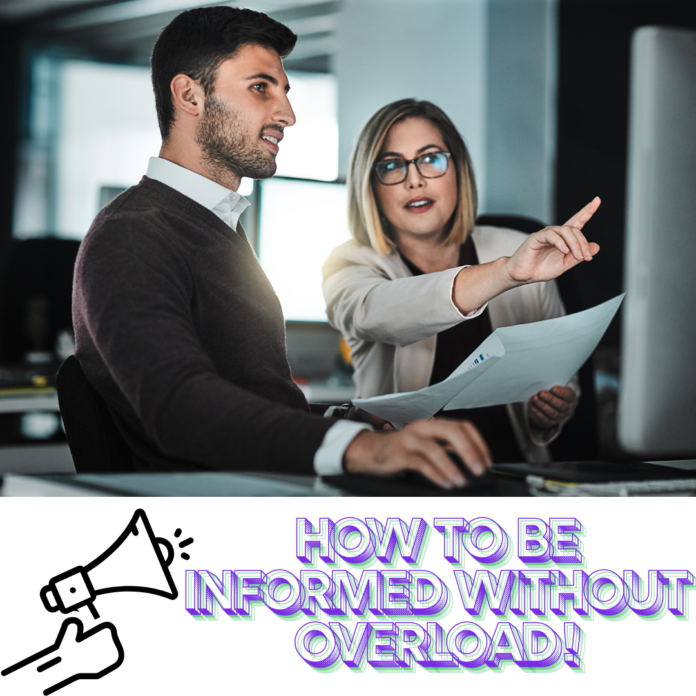In today’s rapid digital pace, keeping oneself informed is both a necessity and a challenge. This is simply because there is too much information coming from all corners: news articles, social media feeds, podcasts, and so on. Needless to say, this balance you can create will help you keep updated without allowing you to give in to stress and anxiety.
In this article, we will show some efficient ways of being informed without feeling overwhelmed so that one may connect with the world around him/her and still keep his/her mental health.
Understanding Information Overload
Information overload occurs when an input to a system exceeds its capability to process the information. In news and media, it is the ever-growing size of the information base that makes recipients of news confused, frustrated, and tired. Difficulty in concentrating, productivity reduction, and increased anxiety-all these are the symptoms of information overload. A very much needed method of solving this riddle is being mindfully aware of how one consumes information.
How to Keep Informed
- Set Targets
Before you start reading the news, you need to know what your goals are. Do you want to know what is currently happening in the world, your industry, or your hometown? By having clear objectives, you will narrow down information you have to go through and avoid being overwhelmed.
- Narrow Down Your Sources
With the number of news sources there are, narrowing it down greatly reduces the noise. Just pick a few trusted sources aligned with your goals and go with them. This further streamlines what information you consume, while at the same time fostering further trust in the sources you ultimately choose.
- Schedule Your News Consumption
Instead of allowing news to constantly disrupt your day, you set specific times that you check the updates. Maybe it is once in the morning, once at lunchtime, and once in the evening. In so doing, by regulating the time upon which you tune in to news, you are better able to control your emotional responses to it and avoid overwhelming feelings.
- Utilize news aggregators.
Whereas news aggregators collect from different sources and expose audiences to one place, tools like Feedly or Flipboard allow one to personalize the news feeds with one’s interests. This will save time in order to have easier access to the information that matters most without having to sift through irrelevant content.
- Practice mindfulness
Consume news more mindfully to stay grounded. Take a few sips in between breathing, focus on the moment, and then tune into the news. This is going to allow you to process your information more productively and not be anxious with constant updates.
- Limit Exposure to Social Media
Most of all, information overload can occur from social media platforms. Consider setting a limit to how much time you use them or curate your feed by following accounts that actually help you learn something. Also, turning off notifications of news accounts can prevent distractions and allow managing your stress.
- Welcome Summary Services
If long posts intimidate you, then you might want to try services like Blinkist or Pocket, which summarize content into smaller pieces that are easily read within a very short span of time. This will prove particularly useful in keeping you updated on complicated subject matter with minimal hassle.
- Engaging in Discussion
Sometimes, you will find that discussing current events with friends or family can chart and even provide a different perspective on it. Sometimes, worthwhile discussions will add to your knowledge and take away from the feelings of isolation associated with reading news on your own.
- Take Breaks
It’s really important to know when you should shut the news off. Schedule time that revitalizes you, such as reading a book, taking a walk, or doing something creative. It prevents burnout and will keep you emotionally even.
Conclusion
While it is important to keep up to date in the digital age, it shouldn’t be at the cost of your well-being. These strategies will help you develop a way in which you can stay informed without getting overwhelmed and being mindfully and selectively informed. And let this be clear: it is not about consuming all the news; it’s about consuming the right news.
FAQs
What is information overload?
Information overload is a situation whereby what is at one’s disposal to learn becomes so much that the human brain cannot process any further information, leading to confusion and stress.
Which news sources can I trust, and how would I know that?
Look for news organizations that have an established history of accuracy, objectivity. Check out their editorial standards and reviews from other credible organizations.
Is it OK to go off the news?
Of course, it can help minimize your level of stress and avoid burnout so that you go back to the news fresher.
What are some good news aggregators?
Popular news aggregators include Feedly, Flipboard, and Google News, each of which delivers articles from a myriad of sources based on your interests.
How often should I check the news?
That is different for everybody, but setting certain times to check news-in the morning a little, perhaps in the evening-settles and allows you to better control information overload.
Can social media cause an information overload?
Social media can indeed bombard a user with updates and opinions, as it is very easy to feel overwhelmed with the volume of information.
What are summary services?
These summary services reduce longer articles to short, readable forms, which make it a great deal easier to grasp the key points of any text without having to read through everything.
How can mindfulness help with the diet of information?
It produces a disposition in an individual to stay in the present by focusing without judgment, which has an effect of better retention of information and decreased anxiety while consuming news.
Should I talk about the news?
Yes, discussing current events can provide another perspective and help you understand complex issues.
What are some activities I can perform to rejuvenate from news consumption?
Such activities as reading, exercising, or hobbies allow mental rest and help you to relax.
Is the limitation of news sources a good thing?
Reducing your sources enables you to focus on quality information and avoid overwhelming feelings.
How do I know where to draw the line?
Warning signs of needing a break may include anxiety, feeling overwhelmed, or not being able to focus and concentrate. Also, learn to listen to your feelings and take breaks when needed. Can news consumption affect my mental health? Excessive news consumption-especially negative news-contributes to anxiety, depression, and stress. How does one keep oneself updated about certain things? Having some concrete goals about information to be acquired, or regularly reading news aggregators or subscriptions focused on your interests, will allow you to get updated regarding only those things that concern you.
How to balance it out: becoming informed versus daily life? Set priorities by reducing sources and plan a schedule for news consumption. What can I do if current events overwhelm me? Take breaks from the news; engage in self-care activities that help you feel better and talk with someone about how you are feeling. Is it worth being informed about what is going on around? Yes, being well-read equates to being able to talk with the world, as well as getting to make informed choices about life.
How can I possibly avoid misinformation? Verify information through a number of reputable sources; beware of sensational headlines or unverified claims. What role does technology play in information overload? Technology makes it easier to get news because information spreads really fast, but it has also increased the flow of content. Can I be considered well-read if I don’t read the news every day? Indeed, without having to constantly follow the news, it could very easily be kept up to date by a concentration on key updates and the use of summary services.

